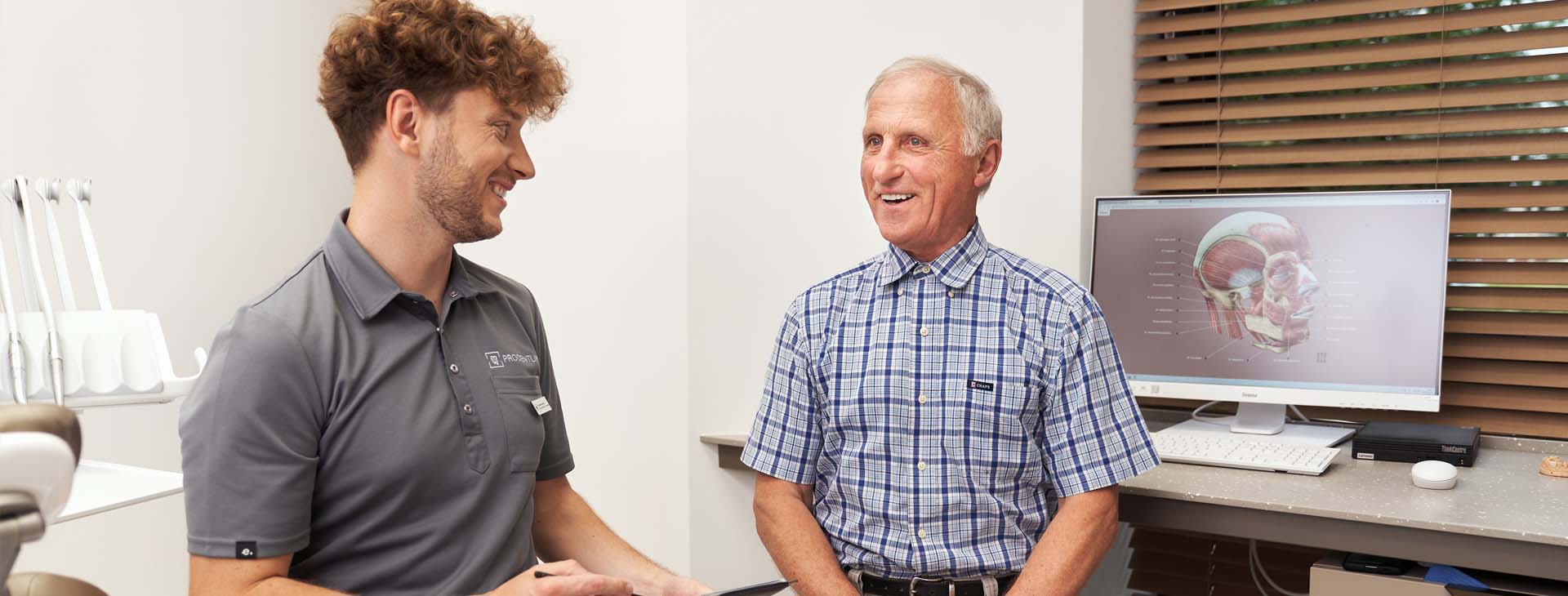
Temporomandibular disorders
Temporomandibular disorders are problems of the jaw joint and chewing muscles.
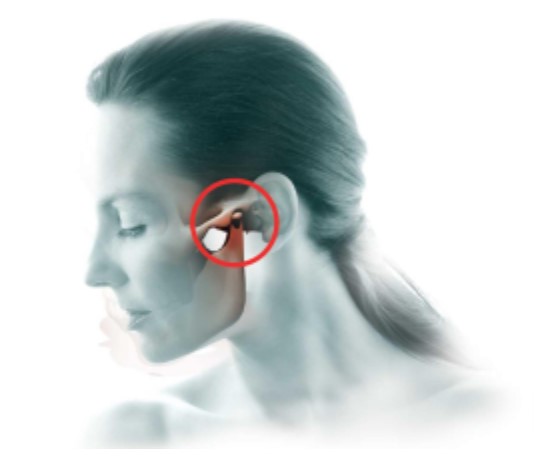
Temporomandibular disorders are problems of the jaw joint and chewing muscles. These problems are often related to tooth grinding and clenching, tension of the chewing muscles, stressful situations, also psychological and other factors. The most common complaints are clicking joints, tooth grinding, painful mouth opening, restricted mouth opening, pain in the temple area; however, there may also be many other symptoms. The etiology of these disorders is complex, often necessitating thorough investigation, instrumental examination and imaging tests. It is still unclear how much local factors and dental treatment can improve the patient’s condition. Patients with joint disorders may need magnetic resonance imaging (MRI), which allows the visualization or non-bony structures (such as the articular disc).
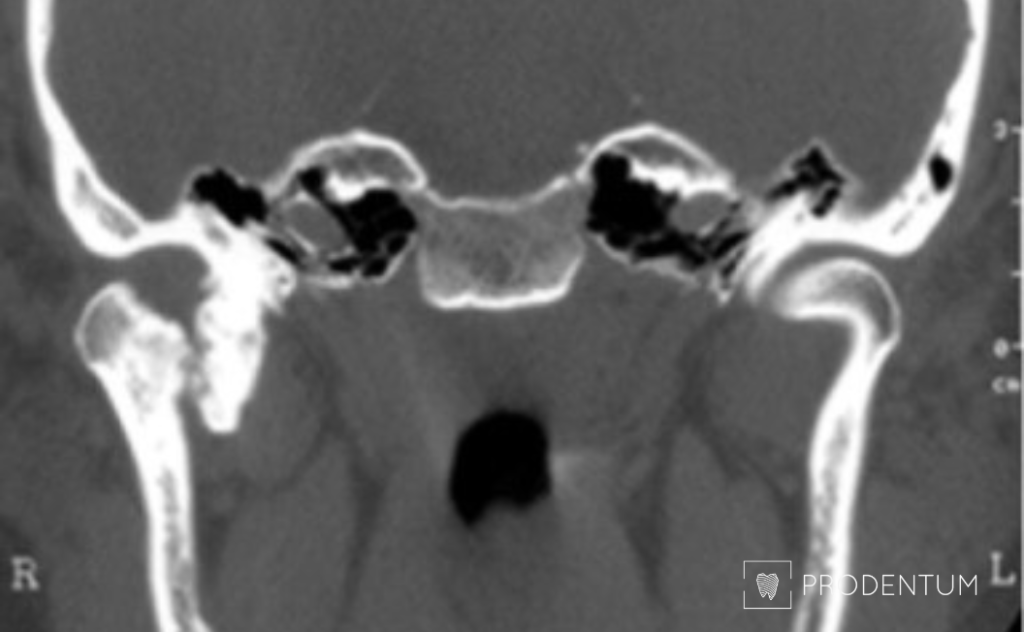
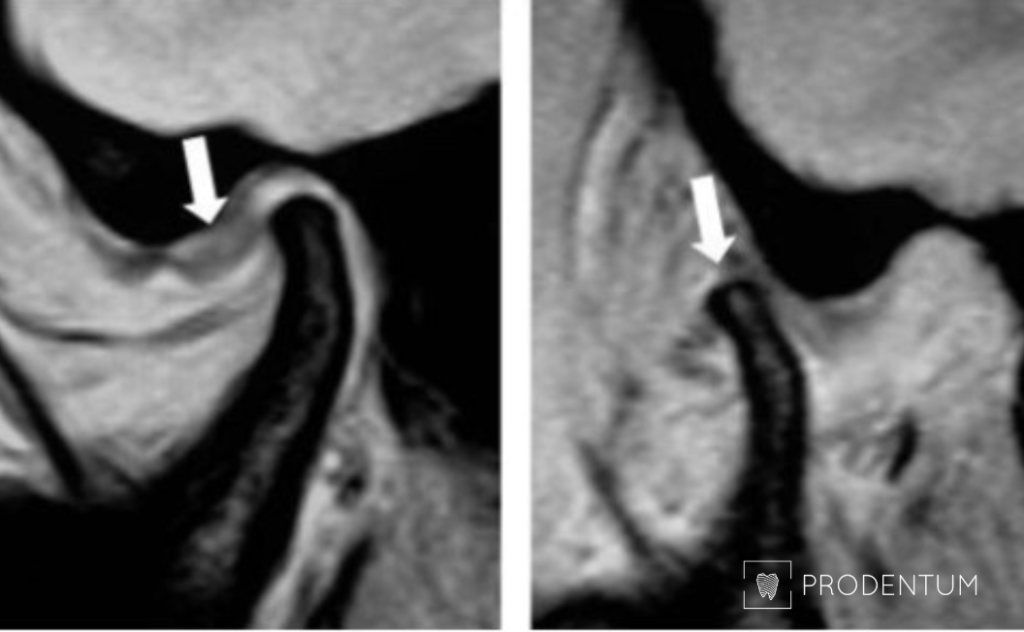
It is very important to educate the patient to constantly monitor the state of their chewing muscles, so that they are not tense and the teeth are not in contact (the teeth should touch only when eating, swallowing and during some physical activity, where there is risk of lower jaw trauma). Reducing stress, unnecessary chewing (chewing gum, very hard foods, holding things between teeth) and sleep hygiene is important. Patients can use various apps to self-monitor, such as BruxAPP.
Treatment of these conditions depends on their nature. If treatment is deemed necessary, various techniques are used: fixing bite problems by changing the bite with provisional restorations, rigid acrylic night guards, orthodontic treatment, restorative or prosthodontic or other treatment, if indicated. During and after treatment patients are advised to follow a specific diet. We work with physical therapists who specialize in the treatment of the masticatory system. These measures are usually effective and invasive treatment is often unnecessary. In difficult cases, additional help of a neurologist, surgeon or sleep specialist, and even surgery may be needed. Temporomandibular disorders may also be caused by other diseases, such as rheumatoid arthritis, etc.
Bruxism (rhythmical or constant biting of the teeth during the day or night) is a phenomenon with origins in the central nervous system. Therefore the effect of local factors (dental treatment) is very small. To reduce the effect of bruxism on tooth- and implant-supported restorations, rigid acrylic night guards are often used.
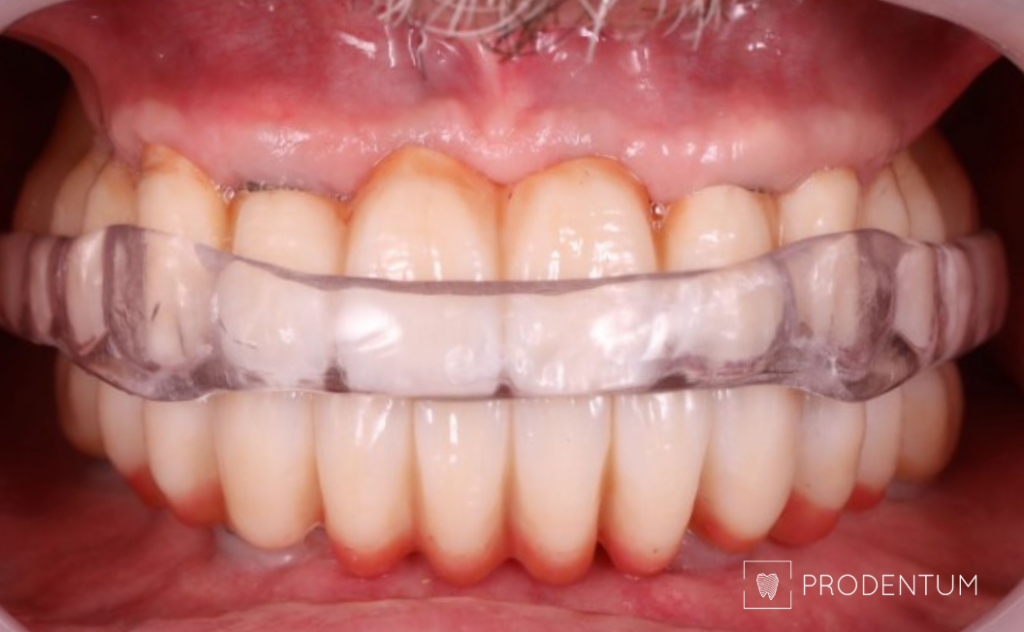
IMPORTANT! There are cases where pathological processes (be it sinusitis, migraine, trigeminal neuralgia, etc.) in the adjacent areas cause pain which radiates to the area of the joints and teeth. In these cases the patient may think he has pain in the tooth of the joint, but it is important not to begin dental treatment if the cause of pain is elsewhere. Determining the exact cause is often difficult and sometimes impossible, as the nature of some headaches is unknown.
Questions regarding temporomandibular disorders are handled by our highly qualified prosthodontists.
Other recommended treatments
The ProDentum clinic has a wide range of services and provides patients with the highest level of professionalism.



